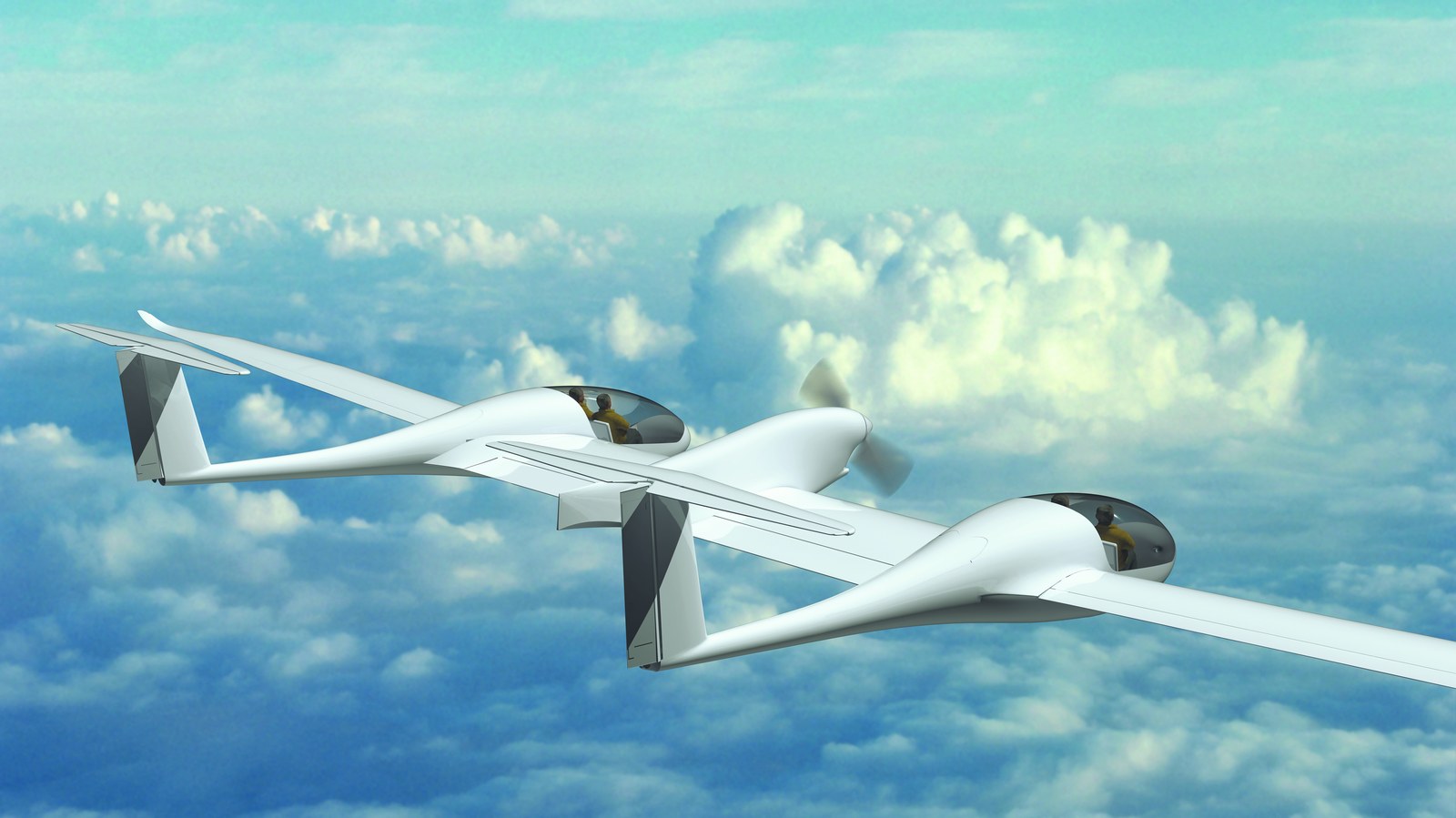Zero-emission passenger flights: DLR presents project for Hy4 four-passenger fuel cell aircraft



With the project for the Hy4 four-seater aircraft, the German Aerospace Center (Deutsches Zentrum für Luft- und Raumfahrt; DLR) is taking another major step towards making zero-emission flying a reality – the Hy4 will be the world's first four-passenger aircraft powered solely by a hydrogen fuel cell battery system. "With the Hy4, we want to bring electromobility to the air, demonstrating the feasibility of this technology and identifying specific fields of application in passenger transport," explained DLR Coordinator of Electrical Aviation Josef Kallo, during the official presentation of the project at the International Trade Fair World of Energy Solutions on 12 October 2015 in Stuttgart.
High-tech power train with a hybrid system
For clean, quiet, energy-efficient and safe flights, the researchers at the Stuttgart-based DLR Institute of Engineering Thermodynamics rely on a special hybrid system: the main power source is a low-temperature Proton Exchange Membrane (PEM) fuel cell. This converts the hydrogen and oxygen in the tank into water and electrical energy. During cruise flight, the fuel cell continuously supplies the electric motor with durable and reliable power. A high-performance lithium battery covers peak power loads during take-off and when climbing altitude.
The Hy4's electric motor has an output of 80 kW and allows for a maximum speed of approximately 200 kilometres per hour and a cruising speed of 145 kilometres per hour. Depending on velocity, altitude and load, a range of between 750 and 1500 kilometres is possible. The most striking feature of the Hy4 is the two fuselages, which are firmly connected to each other by the wing. This twin fuselage design allows an optimal distribution of the drive components and a higher total loading capacity. Each one can seat two occupants. The maximum weight of the Hy4 is 1500 kilograms.
Flying emission-free, faster, higher and further
"The major scientific challenge of the project is to maximise the performance, efficiency and reliability of the drive system step by step and test it for use as a passenger transportation vehicle," summarises Kallo. Firstly, DLR researchers will design the drive train and install it in the aircraft. The first flight of the Hy4 is planned for the summer of 2016 at Stuttgart Airport. The development of the drive system is based on DLR's extensive aviation and energy research activities in the areas of batteries, fuel cells and hydrogen technology.
Electric Air Taxis – regional transport as an entry scenario
In particular, the DLR researchers see application possibilities in European regional traffic. "Our goal is to use aircraft such as the HY4 as an Electric Air Taxi to connect destinations more flexibly and offer faster alternatives to existing routes and means of transport," said Kallo, explaining a possible scenario. Electric drives are well suited for shorter distances due to their low noise and emission levels, as well as their capability to take off and land on short runways thanks to their high torque. With more than 60 regional and international airports, Germany has a well-developed, extensively distributed network and already posseses the appropriate infrastructure for the implementation of this approach. André Thess, Director of the DLR Institute of Engineering Thermodynamics stressed: "The Hy4 four-seat electric aircraft perfectly matches our strategy to develop synergies between electromobility on the road and in the air."
The Hy4 project partners
Under the auspices of the DLR Institute of Engineering Thermodynamics, which is responsible for the overall integration of the power train, the following partners have joined forces to achieve the world's first fuel cell passenger aircraft: the fuel cell manufacturer Hydrogenics, the aircraft manufacturer Pipistrel, the University of Ulm as a scientific partner, as well as Stuttgart Airport as the home airport for the Hy4. The DLR spin-off H2FLY will operate the Hy4 and will be responsible for the certification process.
